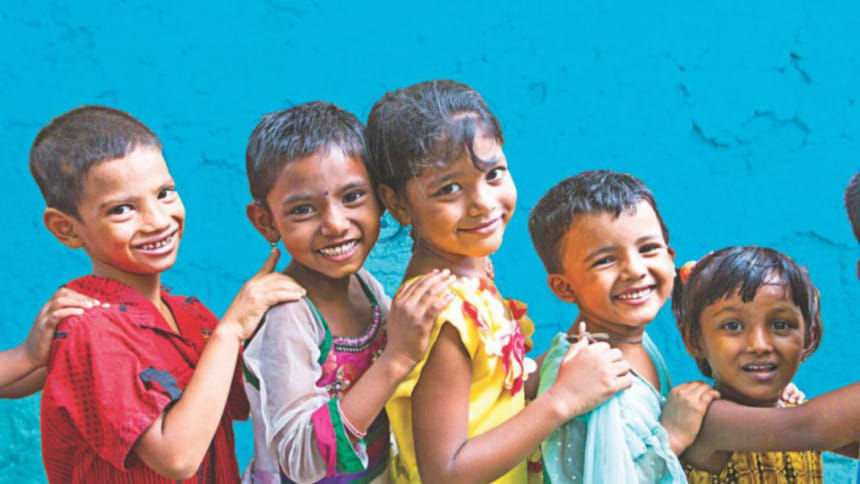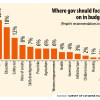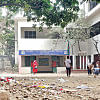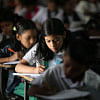Can Bangladesh provide quality education to its children?

The inequities that deny children their right to quality education from early childhood through adolescence can trap young people in low-skilled, poorly paid, insecure employment, among other things, which holds back economic growth and fuels inequality. Changing demographics underscore the importance of all children, especially those who have been excluded. Bangladesh, as a country on its way to achieving the middle-income economy status, cannot afford to ignore that.
While Bangladesh has made considerable progress over the past decades increasing primary school enrolment—raising GER (gross enrolment ratio) to 107 percent and NER (net enrolment ratio) to 95.6 percent—an estimated 39.8 percent children are reported to have dropped out before completing primary schooling. The number of out-of-school children is thought to be declining, but according to UNICEF estimates, approximately 2.9 million children of primary school age (6-10 years) do not regularly attend school.
The government, with support from its development partners, launched a number of innovative programmes to alter the situation: by retaining all enrolled children in schools, reducing the drop-out rate, and mainstreaming all out-of-school children to government primary schools. These include support to programmes run by BRAC (Cohort), Dhaka Ahsania Mission (Unique), Save the Children (Shikhan), and the Jagorani Chakra Foundation (JCF) which has been implementing activity-based learning (ABL) for 12,475 out-of-school children aged 8-14 years through 420 learning centres in Satkhira district.
The objectives of ABL are the development of each student as an educated, mature adult with a sense of responsibility for one's own learning, developing self-knowledge and the ability to assess one's own performance critically, and an understanding of how to apply knowledge and abilities in many different contexts. All the 420 ABL teachers are women and have undergone an intensive 19-day training along with 33 programme organisers who provide regular supportive supervision. Existing materials used by UNICEF and other NGO projects have been modified/adapted for use in ABL along with the National Curriculum and Textbook Board's primary textbooks which facilitate easy mainstreaming to primary schools.
Visits to a few ABL centres and discussion with the teachers, learners, community leaders and the project staff revealed that the children were learning through a stimulating classroom environment using low- or no-cost learning materials and interactive teaching methodology. The centres are open for eight hours a day and six days a week whereby 30 children, mostly girls, of different levels of learning, about half in the morning and the rest in the afternoon, are being taught by the teachers using multi-grade approach. Each learner is assessed after every lesson, both group-wise and individually, to ensure learning. It takes a learner 39 months to complete the ABL cycle. The per capita cost for one cycle of ABL is about Tk 18,778, i.e. Tk 481 per month.
Of the 12,475 targeted children, 9,187 have graduated and mainstreamed to neighbouring government primary schools. Primary school teachers informed that these learners adjusted well to the primary classes and were making good academic progress. However, an evaluation of the quality of children's learning would be important and JCF is planning to do that. Over 452 IPT shows and 5,600 community dialogues were organised to reach around 185,000 people as well as around 100,000 parents and community leaders that helped to enthuse out-of-school children and solicit community support in making this initiative a success.
It is evident from this experience that Bangladesh can provide quality education to all children—those who are already enrolled and those who are left out—especially girls, by just changing the teaching learning processes: using a stimulating learning environment, interactive teaching methodology, encouraging community participation, and offering continuous teacher development and supportive supervision. The success of ABL experience will, hopefully, inspire the government to support many such initiatives to reach all out-of-school children and provide a quality education for realising Bangladesh government's goal of becoming a prosperous and developed nation.
AKM Kamaluddin is former Chief of Education and Youth Development, UNICEF Kenya and Rwanda.
E-mail: [email protected]

 For all latest news, follow The Daily Star's Google News channel.
For all latest news, follow The Daily Star's Google News channel. 








Comments